THE shotgun dismissal of former finance minister Nhlanhla Nene has exposed long-standing weaknesses in the fabric of SA’s politics that have reached dangerous proportions. The weaknesses emphasise the urgency of political reform and a reorientation of our politics.
It is now common cause that the president took the decision either on his own or after consulting people outside the usual political structures. None of the most senior African National Congress (ANC) officials knew about Nene’s removal until it happened. Consequently, neither ANC secretary-general Gwede Mantashe nor the party’s deployment committee had a hand in the decision.
In response, the party could only sheepishly reaffirm the president’s prerogative to appoint and dismiss ministers at will. While a similar disregard for the collective may have occurred in recent times, that this one was high-profile and public means the rest of the ANC leadership has been rendered irrelevant.
The big elephant in the room is the identity of the parties in whom the president confides. There is a powerful family at whose premises his motorcade has been known to park regularly for years now. It wields significant power and has captured large swathes of the state and its enterprises, particularly those with huge procurement budgets. It appoints boards and executives, and provides "advisers" to patronage ministers catapulted from obscurity into powerful positions that hold the levers to the country’s wealth and finances.
Many South Africans know who they are and how much the president is beholden to them. The level of influence they have over the country’s affairs is such that the ANC has become a rubber stamp because opposing them would force it into a battle against its president.
State capture results in only narrow interests being served. Because the historical narrative has been that those who wish to capture the state are white, western and capitalist, it has been difficult for many — especially in the ANC — to accept that this evil may also be perpetrated from within.
The ANC finds itself in an invidious position of its own making. For years, it has been able to equate the defence of its president with that of its name, the interests of its members and the country. This claim is no longer legitimate. It has two stark and urgent choices. Either will unfold whether or not the ANC does anything.
It has to choose between itself and its president. The deafening silence of most of its leaders demonstrates the paralysis that has been exposed with Nene’s crude firing. If it fails to act now it can never reclaim itself. The second choice is to find a way of defending its president and watch the little that is left of its reputation sink with him. In doing so, it will alienate more people who were willing to give it a chance in the deluded belief that they can separate it from its president. They have no more sophistry left with which to explain their conflicted position, and feel deeply embarrassed.
Since the president is commander-in-chief of the army and has executive authority over the intelligence services, we have a national security risk if he is open to influence in this way. This means the executive nature of our presidency becomes a weapon used to subvert the wishes of the people in favour of a few, powerful individuals and interests
How does this relate to Nene and others such as former mineral resources minister Ngoako Ramatlhodi? Whoever carries so much influence with the president can instal puppet ministers who will dance to their tune. It means administrative and policy decisions of state are no longer taken after due consideration of the interests of the people, but in service of these elements.
For state-owned enterprises, this means big procurement contracts can be awarded in their favour. It is now very likely that the fiscal framework that stands between SA and junk credit rating status will be altered, regardless of what the presidency said at the weekend. The nuclear-procurement plan demands that it is, or funds have to be diverted from elsewhere.
An adequate response is not just to hope for a president with a stronger ethical centre, but to build a system that can withstand one with a rotten sense of ethics. A significant part of this is intolerance for corruption by citizens. Two remedies may work and can only work in tandem. These are to curtail executive discretion in areas that involve fiscal and human rights risk. However, Parliament can only play an effective role if we have a hybrid electoral system in which the majority of MPs are directly elected.
Second, we need more transparency regarding government documentation, in particular correspondence. Parliament has to be able to demand these, such as the memorandum for which South African Airways has taken us to court. Currently, it does not demand much because ANC MPs are like scared sheep shepherded into a defensive position and told to bleat a chorus, no matter how incoherent. The Nkandla debacle showed this well.
While some may believe unseating Zuma as president is a remedy, I believe they are mistaken if we do not fix the systemic defects that have brought us to this point. Bad systems produce bad outcomes and allow evil to prosper. That is the lesson of our time and we dare not ignore it.
While we mull over this political reform, we can look forward to an exchange rate of R20/$. Maybe then the urgency will become apparent.
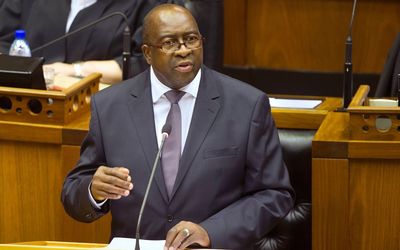
Nhlanhla Nene was removed as finance minister on Wednesday. Picture: TREVOR SAMSON
THE shotgun dismissal of former finance minister Nhlanhla Nene has exposed long-standing weaknesses in the fabric of SA’s politics that have reached dangerous proportions. The weaknesses emphasise the urgency of political reform and a reorientation of our politics.
It is now common cause that the president took the decision either on his own or after consulting people outside the usual political structures. None of the most senior African National Congress (ANC) officials knew about Nene’s removal until it happened. Consequently, neither ANC secretary-general Gwede Mantashe nor the party’s deployment committee had a hand in the decision.
In response, the party could only sheepishly reaffirm the president’s prerogative to appoint and dismiss ministers at will. While a similar disregard for the collective may have occurred in recent times, that this one was high-profile and public means the rest of the ANC leadership has been rendered irrelevant.
The big elephant in the room is the identity of the parties in whom the president confides. There is a powerful family at whose premises his motorcade has been known to park regularly for years now. It wields significant power and has captured large swathes of the state and its enterprises, particularly those with huge procurement budgets. It appoints boards and executives, and provides "advisers" to patronage ministers catapulted from obscurity into powerful positions that hold the levers to the country’s wealth and finances.
Many South Africans know who they are and how much the president is beholden to them. The level of influence they have over the country’s affairs is such that the ANC has become a rubber stamp because opposing them would force it into a battle against its president.
State capture results in only narrow interests being served. Because the historical narrative has been that those who wish to capture the state are white, western and capitalist, it has been difficult for many — especially in the ANC — to accept that this evil may also be perpetrated from within.
The ANC finds itself in an invidious position of its own making. For years, it has been able to equate the defence of its president with that of its name, the interests of its members and the country. This claim is no longer legitimate. It has two stark and urgent choices. Either will unfold whether or not the ANC does anything.
It has to choose between itself and its president. The deafening silence of most of its leaders demonstrates the paralysis that has been exposed with Nene’s crude firing. If it fails to act now it can never reclaim itself. The second choice is to find a way of defending its president and watch the little that is left of its reputation sink with him. In doing so, it will alienate more people who were willing to give it a chance in the deluded belief that they can separate it from its president. They have no more sophistry left with which to explain their conflicted position, and feel deeply embarrassed.
Since the president is commander-in-chief of the army and has executive authority over the intelligence services, we have a national security risk if he is open to influence in this way. This means the executive nature of our presidency becomes a weapon used to subvert the wishes of the people in favour of a few, powerful individuals and interests
How does this relate to Nene and others such as former mineral resources minister Ngoako Ramatlhodi? Whoever carries so much influence with the president can instal puppet ministers who will dance to their tune. It means administrative and policy decisions of state are no longer taken after due consideration of the interests of the people, but in service of these elements.
For state-owned enterprises, this means big procurement contracts can be awarded in their favour. It is now very likely that the fiscal framework that stands between SA and junk credit rating status will be altered, regardless of what the presidency said at the weekend. The nuclear-procurement plan demands that it is, or funds have to be diverted from elsewhere.
An adequate response is not just to hope for a president with a stronger ethical centre, but to build a system that can withstand one with a rotten sense of ethics. A significant part of this is intolerance for corruption by citizens. Two remedies may work and can only work in tandem. These are to curtail executive discretion in areas that involve fiscal and human rights risk. However, Parliament can only play an effective role if we have a hybrid electoral system in which the majority of MPs are directly elected.
Second, we need more transparency regarding government documentation, in particular correspondence. Parliament has to be able to demand these, such as the memorandum for which South African Airways has taken us to court. Currently, it does not demand much because ANC MPs are like scared sheep shepherded into a defensive position and told to bleat a chorus, no matter how incoherent. The Nkandla debacle showed this well.
While some may believe unseating Zuma as president is a remedy, I believe they are mistaken if we do not fix the systemic defects that have brought us to this point. Bad systems produce bad outcomes and allow evil to prosper. That is the lesson of our time and we dare not ignore it.
While we mull over this political reform, we can look forward to an exchange rate of R20/$. Maybe then the urgency will become apparent.


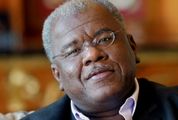
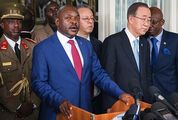




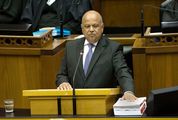
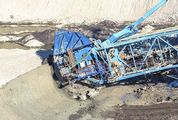
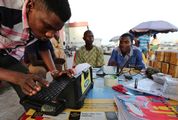

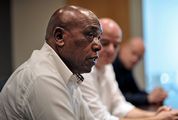








Change: -0.88%
Change: -1.16%
Change: -1.88%
Change: -0.02%
Change: -3.41%
Data supplied by Profile Data
Change: -1.60%
Change: 0.32%
Change: -0.88%
Change: 0.00%
Change: 0.44%
Data supplied by Profile Data
Change: 0.09%
Change: 0.01%
Change: 0.11%
Change: -0.14%
Change: 0.11%
Data supplied by Profile Data
Change: 0.27%
Change: 0.21%
Change: 0.00%
Change: 0.62%
Change: -0.84%
Data supplied by Profile Data